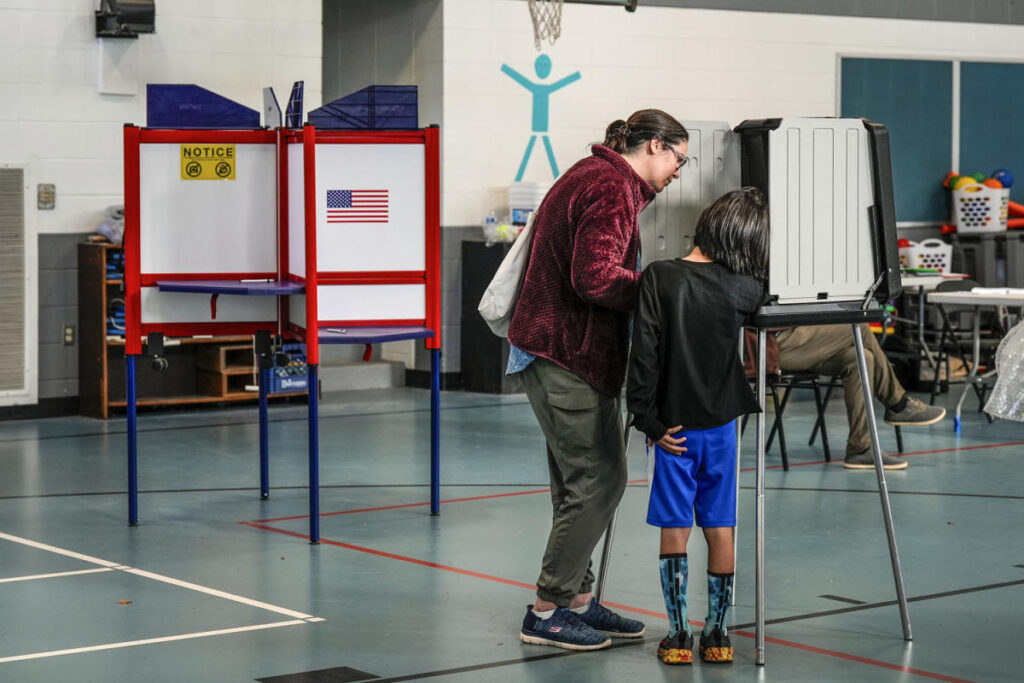In recent elections, voters in eight states—Idaho, Iowa, Kentucky, Missouri, North Carolina, Oklahoma, South Carolina, and Wisconsin—endorsed Republican-sponsored constitutional amendments stipulating that only American citizens can participate in elections. Election projections indicate that these measures received significant popular support, reinforcing Republican efforts to emphasize citizenship as a requirement for voting. Although noncitizen voting is already illegal both state and federally, these amendments aim to amplify this prohibition within state constitutions. Lawmakers in these states, predominantly controlled by the GOP, facilitated the inclusion of these amendments on the ballots, demonstrating a strategic choice to solidify the narrative of noncitizen voting as a pressing concern, despite evidence indicating its rarity.
The push for these amendments reflects broader GOP initiatives to address perceived threats of noncitizen voting, despite a consensus among election experts who categorize these claims as unsubstantiated. Critics suggest that such measures operate as part of a political strategy emphasizing supposed election integrity, which has been a focal point in Republican rhetoric. Currently, outside of these ballot initiatives, the existing state and federal laws already prohibit noncitizen voting, and few exceptions exist, mainly in select cities and Washington, D.C., where some municipalities have allowed noncitizens to vote in specific local elections. This raises questions about the motivations driving these new amendments, as they appear to respond to fears rather than actual occurrences of electoral misconduct related to noncitizens.
Supporters argue that the amendments serve as preemptive measures against potential issues posed by noncitizen voting. The amendments aimed to amend existing constitutional language to now specify “only” citizens can vote instead of the previous broader wording, which allowed for interpretations that included all citizens. This linguistic modification is central to the GOP’s objective to reaffirm voting citizenship as a primary condition for electoral participation. In Idaho and Kentucky, the constitutional revisions will add explicit statements declaring that “no person who is not a citizen of the United States” can vote, further clarifying this restriction.
Advocates for the amendments suggest they are a proactive response to concerns about election integrity, framing noncitizen voting as a potential threat to democracy. This narrative fits within a larger context of Republican efforts across the nation, which have included contentious debates surrounding voter roll purges and legislative proposals imposing stricter identification requirements for voter registration. House Speaker Mike Johnson has notably championed legislation demanding documentary proof of citizenship from voters, reinforcing the GOP’s focus on voter integrity and potential fraudulent activities connected to noncitizen voters.
Historically, the rhetoric surrounding noncitizen voting has been fueled by influential figures such as former President Donald Trump, who has propagated unfounded allegations regarding extensive electoral fraud linked to noncitizens. This messaging has shaped not only party strategy but also public discourse surrounding voter eligibility and electoral processes. The Republican National Committee has incorporated these themes into its broader election integrity campaign, maintaining that noncitizen voting poses a significant risk that could undermine elections as they gear up for the 2024 electoral cycle. The passage of these constitutional amendments is both a culmination of and a response to this ongoing narrative.
Overall, these successful ballot measures signify a continuing trend within Republican politics to elevate the issue of noncitizen voting, capitalizing on unfounded fears and potential voter misconceptions. While the legality of noncitizen voting has remained clear, the amendments reflect a political landscape poised to reshape dialogues around voting rights and equity. Voter participation and inclusivity remain essential topics in American democracy, and these changes present critical implications for future electoral engagement, as states may adopt even stricter interpretations and regulations surrounding voter eligibility. Ultimately, the legislative focus on citizenship as a narrow criterion for voting risks undermining broader democratic principles, perhaps stifling progress toward a more inclusive electoral process.

